Watery Eyes in Children David Kinshuck |
|
Normal tears |
|
Tears are made in a gland under the skin above the eye. They flow over the front surface of the eye, and drain into tiny tear ducts in the eyelids, near the nose (under the skin). Then they flow into a tear ‘sac’, and from there they pass through a wide channel, the ‘naso-lacrimal duct’ into the inside of the nose. |
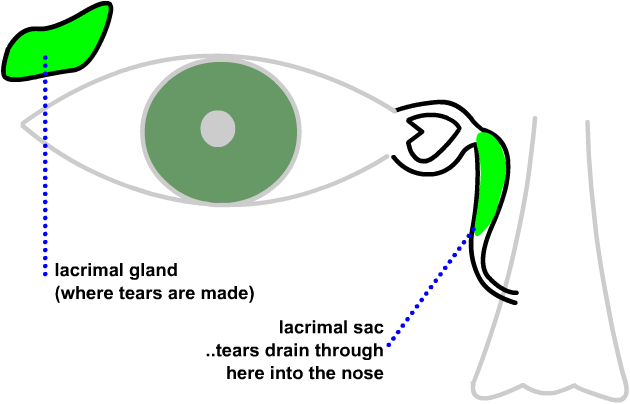
|
healthy tear flow over the eye into the nose: |
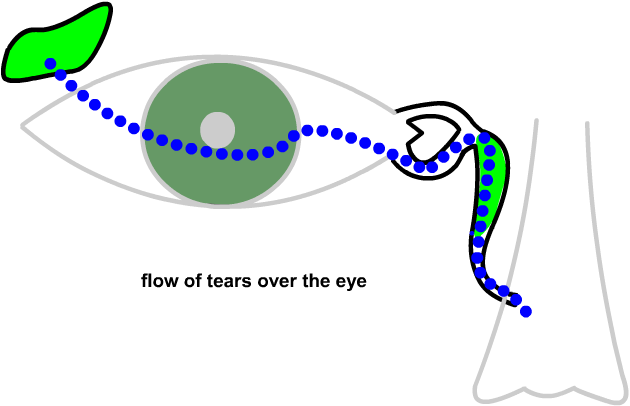 |
Blocked naso-lacrimal duct |
| Babies whose eyes water are usually born with a tear duct that is
slightly narrow. In 90% the tear duct will widen by itself by the age
of 2 years and the eyes will stop watering. Indeed, many children's
eyes will have stopped watering by the age of 1 year.
Such babies may develop conjuctivitis every now again. That is, the eye goes red and sticky with a discharge. Antibiotic drops from your family doctor help get this better quicker. A few babies develop this repeatedly: ask you doctor if you can have a spare prescription in case this happens. These infections usually start to clear as the duct opens, usually by the age of one. |
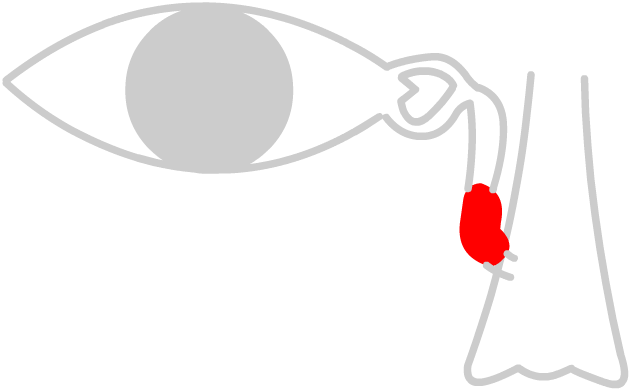
|
Probing |
|
Usually, in 90% of babies, the tear duct will open by itself, but if not, a small operation can help. This is called 'probing' and this will open most blockages. It is very gentle, but does need a general anaesthetic. There are unusual children born with slightly more complicated problems, and for these different operations may be necessary. |
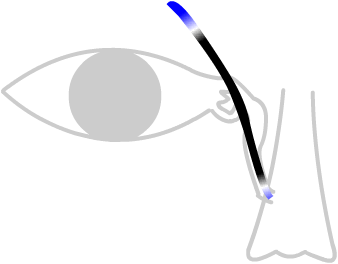 |
|
Infection of the tear sac |
| A few children with a blocked tear duct can develop an infection
in the tear sac. This is quite uncomfortable, just like an abscess
anywhere else in the body.
It is called ‘acute dacrocystitis’. This begins as a blocked tear duct and watery eye. The tears then get trapped in the tear sac, and stagnate. The stale tears may then become prone to infections. |
|
This is treated as below. Usually an operation is necessary after acute dacrocystitis. |
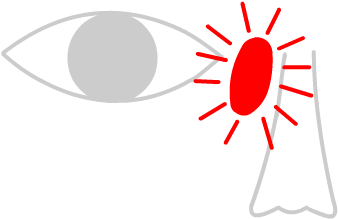 |
|
The treatment for an infection of the tear sac. |
|
| The address of this site ('org' changing to 'nhs') is changing from http://www.goodhope.org.uk/departments/eyedept/ to http://www.goodhope.nhs.uk/departments/eyedept/ |
|